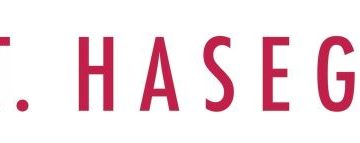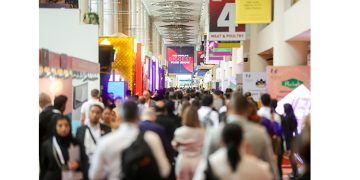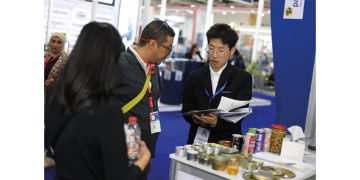We conducted an interview with Mr. Fatih Doğan, CEO of Golda Gıda Company. Full text of the exclusive interview follows:
What is the size of the Food City (Gıda Şehri) as of today?
Food City ( Gıda Şehri ) was established in 1997, and started its production activities in 1998. It was built on a 1.100 thousand m2 outdoor area, with 100 thousand of it being indoor area. Distribution and export activities of pasta, flour, pulses, biscuits, wafer-coated products, milk, production and sales of live cattle, have been going on. We provide service to 85 countries in exports.In 2015 we will continue to diversify our product line that we serve and the amount of countries. On annual average, we produce 80,000 tons of food in food groups.
What type of actions are you taking in order to increase production capacity?
In the direction of increasing the production capacity, we are embarking on huge investments each year. In 2015 we will invest 5.6 million turkish liras . All of our investments are to increase our production capacity and to move our productivity to higher levels. Can you give us information about the contents and the amount of new investments?
Our efforts to increase our production capacity can be listed as follows. To improve production capacity, productivity and quality in our pasta factory, we are planning a 380 thousand euros of investment in presses and mixers. In order to increase our production capacity in our farina factory, Golda Gıda, the owner of Komgıda Gıda Sehri (Komgıda Food City), which is drawing attention as the biggest integrated projects in Turkey and in the world, has been producing an average of 40 thousand tons of food products in a year.
investment to 500 and 1kg capable packaging machines is planned. In order to increase our wafer production, a new wafer line with a cost of 430 thousand euros is planned for our biscuit group factory. In addition, to increase production capacity of biscuits, purchase of a new package and peters machine with a 90 thousand euros investment is planned.
What is the volume that you reached in exports as of today?
Our exports are increasing from year to year. Our exports that were 13.5 million USD in 2013 are now 17 million USD in 2014 with an increase of %26. This figure includes exports of %85 Golda Pasta (Golda Makarna) and %15 biscuits, marsh mellow and wafers.
Which markets are you active in?
We are currently exporting to 85 countries. And we are active in Middle Eastern – African and Far Eastern markets.
Do you have new markets planned in your agenda?
We aim to increase the number of countries we export to, to 100. Within our plans we have Far Eastern and North European countries as our export target.
What is your growth target for 2015?
Our export target in 2015 is to exceed USD 20 million, with a growth of %18.
Will the results of the elections affect your investment plans?
Our investment plans are active in our agenda and our production and sales budget rates will continue to progress as we planned.
What do you think about the overview of the sector? What are your growth expectations?
In order to increase the consumption per person in the pasta industry we are working to make our brand better known and to step up its marketing activities. For this reason, we try to use our marketing department in an active way. Our growth plans for future are thought to be built heavily on the export area.
What are your expectations of the upcoming harvest yields and prices?
Harvest of raw materials compared to previous years is estimated to increase by at least 25%. The same increase is expected in the World market as well.
How do the current crises in the region affect exports?
In particular, the difficulties experienced in the Middle East and Africa will lead the export volume to shift to different areas. Northern European countries are in the area that we think of growth.
What do you expect of the food prices in the world?
In the past period, due to the drought all over the world, food prices were increased. This year prices will most likely keep a downward trend. Crises in our region has led to a decline in our exports. We are trying to overcome this problem by searching for new markets.
Turkey’s position in becoming an importer of some agricultural products is among the issues often criticized. What is your assessment in this regard?
Purchases made by the support of the State do not properly reflect to the manufacturer. This support is more useful for the traders. This leads to an increase in raw material prices that we purchase in the country and it causes us to use imported raw materials in order to compete. Changing the shape of services and the scope of support given to manufacturers may lead to an increase in yield per unit area, as a result cheap raw material prices may be achieved to prevent imports.
















